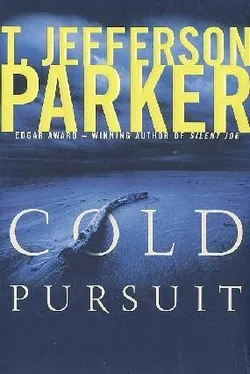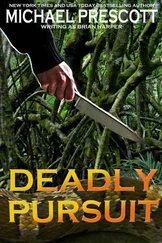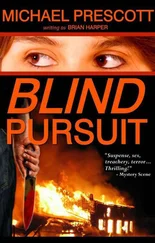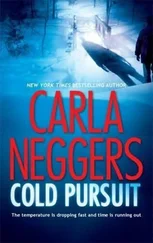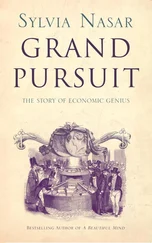He got through to Charley Farrell, who had sold three wine-colored SUVs in the last three months. McMichael took down the names, addresses and phone numbers of the proud new owners: Andre Proulx of San Diego, Dawn Bigley of Carlsbad and Eqbar Quatrah of La Jolla.
Then he logged on to VICAP for an update on Dylan Feder. Thirty-four days into his parole skip and he still had not been seen.
McMichael talked to Feder's Dade County parole officer, a rough-voiced man named Norm Briggs. Briggs said he had thought Feder was going to play it straight, because he'd checked out of prison and into his designated Miami motel, contacted his P.O., went out and got a job selling advertising space in an adult newspaper. He'd found a girlfriend, passed four drug tests, seemed to be turning things around.
"Then he cut out," said Briggs. "Now he's looking at eighteen more months in lockup, just for skipping out on a job and a girl and me. Stupid. Another year he'd have been free and clear."
"Any idea where he went?"
"I got a maybe from Dallas PD, and I got a maybe from Tucson PD."
"Coming west."
"Sally still in San Diego?"
"We just arrested her in connection with a robbery-homicide."
McMichael explained the basics.
"That surprises me," said Briggs. "I had her for a pretty good lady with bad judgment when it comes to men."
"Probably so," said McMichael.
"Feder's terms don't let him within fifty miles of her. That's good for the rest of his life. He never said one word to me about her. But hey, a hundred bucks to a PI and he's got an address and phone."
"Where's he likely to show up?"
"He's a ladies' man. Clubs, bars. Anywhere there's women to prey on. He was selling space in one of those dating tabloids here in Miami. Doing pretty well for himself. You might look into the local skin rags."
"Are the VICAP mugs good?"
"He changes his facial hair a lot- mustache and a little Vandyke- there one day and gone the next. He's a body guy, too, always in the gym. Big muscles, tight clothes. You know the type."
"No aka's?"
"None he's used before. But you can bet he's got at least one now."
It took McMichael just two calls to get Dade County Juvenile Court judge Paul Ramos on the line. He remembered Sally Gaglosta and was also surprised to hear of her arrest.
"How good was her self-defense story?" McMichael asked.
"It was her against him. She was lucid and specific and credible. He was dim and contradictory. She told me she hit him with the dull side of that cleaver so she wouldn't hurt him too bad. I believed her, and thought it was a remarkable thing to be thinking, under the circumstances. Trouble is, the dull side's the heavy side and she hit him where the skull was weak from the motorcycle crash. Now, he'd been a pillar before the accident- degree from the University of Florida, worked in a local bank, churchgoer. Sally, she came from bad circumstances in Pike County, Kentucky. I talked to her mother, one of her sisters. Sad, troubled lives. I thought it was to Sally's credit that she'd risen above those circumstances as far as she had."
McMichael thought a moment. "Did you have any evidence that she was working it somehow- stealing, or manipulating him?"
"The investigators turned everything upside down at least once and didn't come up with anything. Not long after, her boyfriend tried to kill her. To be honest with you, I wasn't surprised."
"How so?"
"Sally Gaglosta has bad luck. Pure and simple. Just being born into that family was bad enough. Then the attack, then this boyfriend shooting her. I'm not saying she's a bad person at all. She's not, in my opinion. Just, some people, they're lightning rods for trouble. She's one of them. Miami's no place to be with luck like hers."
While McMichael thought about this thing called luck, he ran records checks on Proulx, Bigley and Quatrah. Bigley and Quatrah came back clean.
But Proulx popped with convictions for assault and soliciting prostitution.
Boom, thought McMichael. The other kind of luck.
***
McMichael looked through Sally Rainwater's phone records. Most of her calls for November, December and early January were local. With the help of a reverse directory and the security departments of both the cell and landline phone companies, he put names to all of them.
An hour later he'd run warrant and records checks, finding all but one of them clean. There were calls to the school friend she'd talked to from Ye Olde Plank on the night of the murder. Two sisters back East. She'd called Dr. Jonathan Bailes of the University of California at La Jolla twice in November. She had called her mother in Hagville, Kentucky, just once, at noon PST on Christmas day. And her brother- the convicted pot farmer- in Pikeville a few minutes later.
Nothing seemed unusual and nothing caught McMichael's eye. He talked briefly to the girlfriend and the professor, and they seemed concerned, willing to talk, and straight up. The other brother was still in prison. The sisters were out of state. She hadn't called a soul in Florida.
Where was her accomplice? And how was she talking to him or her or them? Pay phones, he thought. Or maybe he was calling her. Or maybe there wasn't one.
The desk officer called him at two-thirty to say that McMichael had a visitor in the lobby. "Lance Wood," said the desk cop. "He says he wants to talk to you about Pete Braga."
***
"Can we go outside?" asked Lance Wood. He looked at McMichael with steady blue eyes, then turned to look behind him. He looked early twenties, tall and tanned, with a thatch of straw-blond hair. He was wearing a hooded sweatshirt, shorts and thongs despite the cool January afternoon. McMichael noted the edge of a plastic shopping bag visible in the sweatshirt pocket.
"How come?" asked McMichael.
"Because this is a police station."
"Let's go outside."
They sat on a planter wall, well away from the headquarters entrance. McMichael looked out at the old gray buildings, humbled against the intense blue sky.
"I got your name from the paper," said Wood.
"Okay."
"I scavenge the harbor a couple times a week in my kayak, hit the good spots for finds. After a storm I go out for sure, because the high tides wash up all sorts of good stuff. I was down off of Point Loma a couple of days after that Braga guy got killed, but I didn't know it."
"Didn't know about Pete?"
"Yeah, I don't read the news or watch TV, so I just heard about it two days ago from one of the guys out surfing at Ralph's. He said the old man got beat to death with a fish club right in his own house. The wood and glass one down at Poinsettia Street."
"That's what happened."
Lance Wood reached into the front pocket of his sweatshirt and pulled out a plastic bag with something in it. "I found this down the beach from that house. Friday, after he got killed."
Wood slid a fish bat from the bag. It looked identical to the one lying in Pete's blood in the trophy room.
"Set it on the wall here," said McMichael.
"I've touched it a bunch."
"That's okay."
"When I heard about the old guy, I looked hard at this thing. Thought maybe it was important."
McMichael looked down at the bat. Exactly like the one they'd gotten at Braga's, so far as he could see. "I'm going to have to take this," said McMichael.
"That's why I brought it."
McMichael wrote down his address and phone, talked a little about kayaking and scavenging the bay, found out that Lance had gone to the same high school he did, knew a few of the same families.
"Sorry it took so long," Wood said. "I keep stuff. I hung it on a nail in the garage, figured I might find a use for it someday."
"Don't be. Will you show me where you found it?"
Читать дальше
